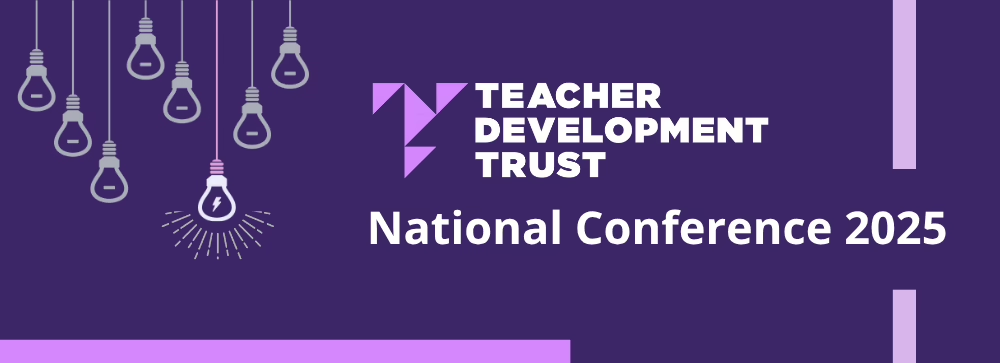No teacher has ever completed a school day with every item on their ‘to do’ list fully ticked off. It’s pretty much impossible to do the job as thoroughly as you’d like to, and there’s a constant feeling of guilt (you know the one I mean, don’t you) that you’re letting somebody somewhere down. “If only I had more time, if only I could do more,” goes the familiar nagging feeling. “What if somebody finds out I haven’t done that particular job?”
Since taking a break from the classroom to set up the Teacher Development Trust, I realise that the familiar nagging fear that somebody was going to ‘find me out’ has gone. I now feel much more of a warm glow and (usually) enjoyable pressure as I try to live up to people’s high aspirations and hopes for the work that my organisation is doing. It’s definitely a challenge, and often exhausting, but quite a different way of life from being chased, if you’ll excuse the metaphor, through the field of teaching by the combine harvester of suspicion and fear.
This makes me very angry. How dare it be the case that teaching can feel like survival? Why do so many ex-teachers talk of relief, and not the loss? How have we let this happen? I don’t want to return to a profession I love and feel I’m losing out on something!
We know that when we have unshakably high aspirations for the young people we teach then they are much more likely to flourish. If they pick up on our doubts and fears then they will almost inevitably falter. If we actively try and catch them out at the first sign of weakness then they will actively wither.
It’s time that we apply this to ourselves. Rather than always looking to weed out the weakest and police the minimum, let’s have high aspirations for teachers and design systems and schools where we help our colleagues live up to their best, which is always expected.
Instead of mandating one inflexible way of being ‘outstanding’ (a ridiculous misuse of the word) and creating ever longer lists of ways to fail and be inadequate, let’s look for ever new ways for teachers to excel and keep one eye (rather than a whole army) on our minimum expectations.
The best schools do this, the best systems do it. It’s a never-ending delight to speak to teachers and schools where they’re getting things right. It’s wonderful to see teachers enjoy the delights and sheer joy of teaching at its best, celebrating the challenge and success of working with the next generation.
It’s surely time for us to shift the national, collegiate and whole-profession focus toward expecting, developing and celebrating the best and not fearing and policing the worst.



